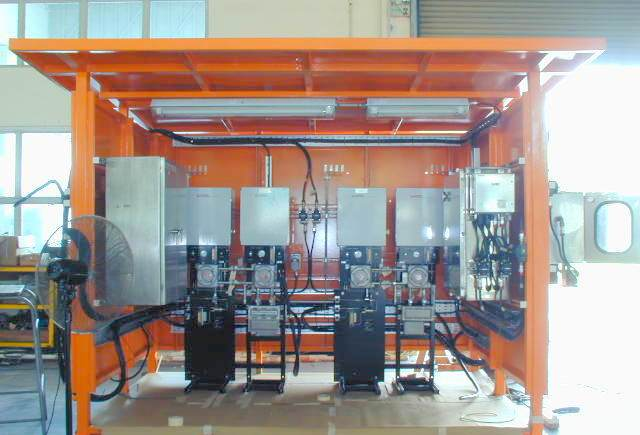How to determine the performance and reliability of online analyzers?
To evaluate the performance and reliability of online analyzers, the following aspects can be taken into consideration:
1、 View technical specifications
Measurement accuracy and precision
Accuracy refers to the repeatability and consistency of measurement results, usually expressed in terms of error range. Accuracy refers to the degree to which a measurement result is close to the true value. View the technical specifications of the online analyzer to understand its measurement accuracy and precision indicators. Generally speaking, the higher the accuracy and precision, the better the performance of the analyzer.
You can refer to the calibration certificate and test report provided by the manufacturer to understand the measurement accuracy and precision of the analyzer under different conditions.
measuring range
Determine if the measurement range of the online analyzer meets your needs. A narrow measurement range may not meet the requirements of certain application scenarios, while a wide measurement range may reduce measurement accuracy.
Understand whether the analyzer can adjust and expand its measurement range according to different application requirements.
response time
Response time refers to the time required for an online analyzer to start measuring and output stable results. For application scenarios that require rapid response, such as process control and real-time monitoring, the shorter the response time, the better.
Check the response time indicators in the technical specifications and understand the changes in response time under different conditions.
stability
Stability refers to the ability of an online analyzer to maintain stable measurement results over a long period of operation. A stable analyzer can reduce the frequency of calibration and maintenance, and improve work efficiency.
The stability of the analyzer can be understood by reviewing the long-term stability test data provided by the manufacturer or user evaluations.
2、 Assess product quality and certification
Brand and manufacturer reputation
Choose online analyzers produced by well-known brands and reputable manufacturers. These manufacturers usually have rich experience and professional technical teams, which can provide high-quality products and after-sales service.
The reputation and product quality of manufacturers can be understood through Internet search, industry forum, user evaluation and other channels.
Quality certification and standards
Check if the online analyzer has passed relevant quality certifications and standards, such as ISO 9001 quality management system certification, CE certification, etc. These certifications and standards can demonstrate that the quality and safety of the analyzer comply with international or industry standards.
Understand whether the analyzer complies with specific industry standards and specifications, such as environmental protection, chemical, pharmaceutical and other industry standards.
Product Material and Craftsmanship
Check the material and process quality of the online analyzer. High quality materials and exquisite craftsmanship can improve the durability and reliability of the analyzer.
Pay attention to whether the appearance design of the analyzer is reasonable, easy to install, operate, and maintain.
3、 Evaluate the actual application effect
On site testing and trial use
If possible, the manufacturer can be requested to provide on-site testing or trial opportunities. Test the online analyzer in practical application environments to observe whether its performance indicators such as measurement accuracy, response time, and stability meet the requirements.
During the trial period, it is possible to communicate and exchange ideas with the manufacturer's technical personnel, understand the operation and maintenance methods of the analyzer, and solve possible problems.
User reviews and case analysis
Search for other users' evaluations and usage cases of online analyzers. Understand their experience and feelings in practical applications, as well as the performance and reliability of the analyzer.
User reviews and case studies can be obtained through the manufacturer's official website, industry forums, social media, and other channels.
Refer to industry recommendations and expert opinions
Consult industry experts, scholars, or relevant institutions to understand their evaluations and recommendations of different brands and models of online analyzers.
Participate in industry exhibitions, seminars, and other activities to exchange and share experiences with other professionals, and obtain the latest information and suggestions on online analyzers.
4、 Consider after-sales service and technical support
After sales service system
Understand whether the manufacturer's after-sales service system is complete, including repair, maintenance, calibration, technical support, and other aspects. Good after-sales service can ensure timely maintenance and support of the analyzer during use, improving reliability and service life.
Check if the manufacturer provides after-sales service commitments and warranty periods, as well as the distribution of service outlets in different regions.
Technical support capability
Evaluate the manufacturer's technical support capabilities, including the professional level of technical personnel, response speed, problem-solving ability, etc. During the use of online analyzers, various technical issues may arise, requiring timely and effective technical support from the manufacturer.
You can communicate and exchange ideas with the technical personnel of the manufacturer to understand their technical support methods and service processes.









Please first Loginlater ~